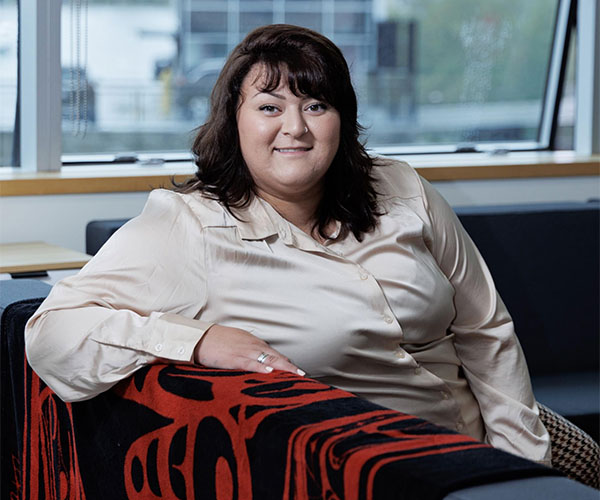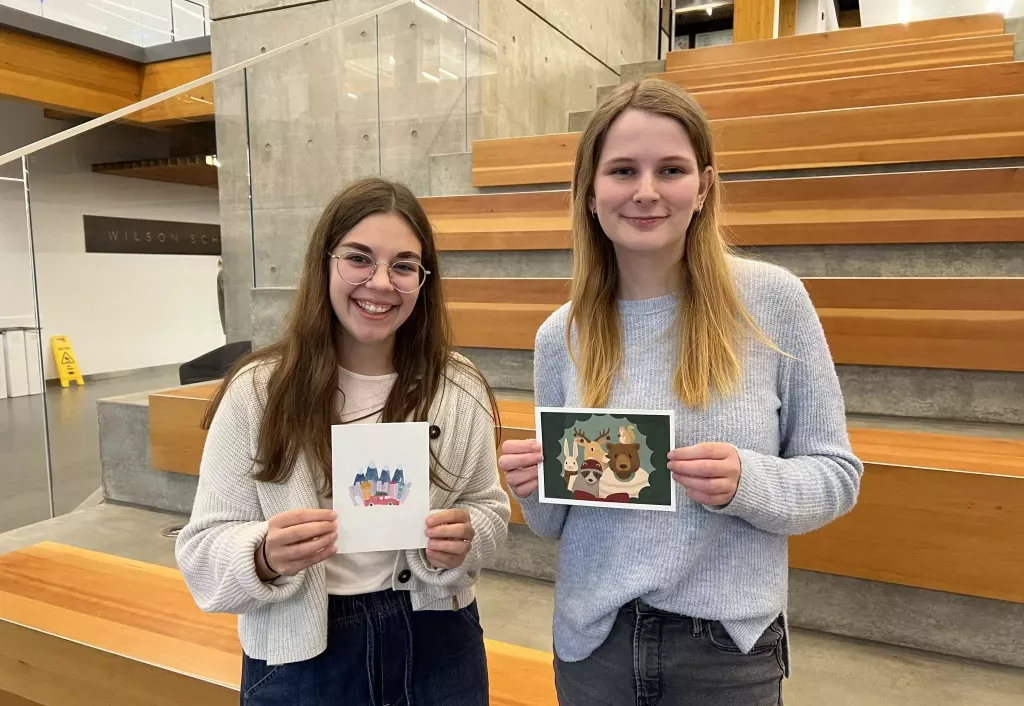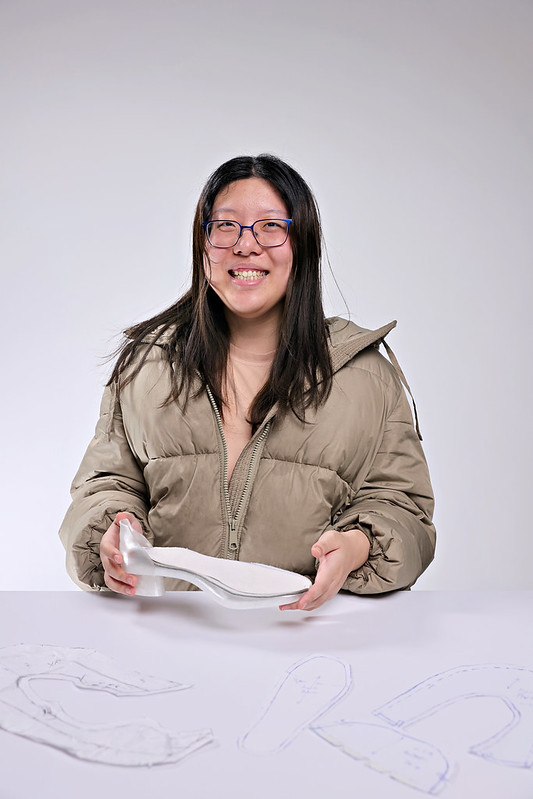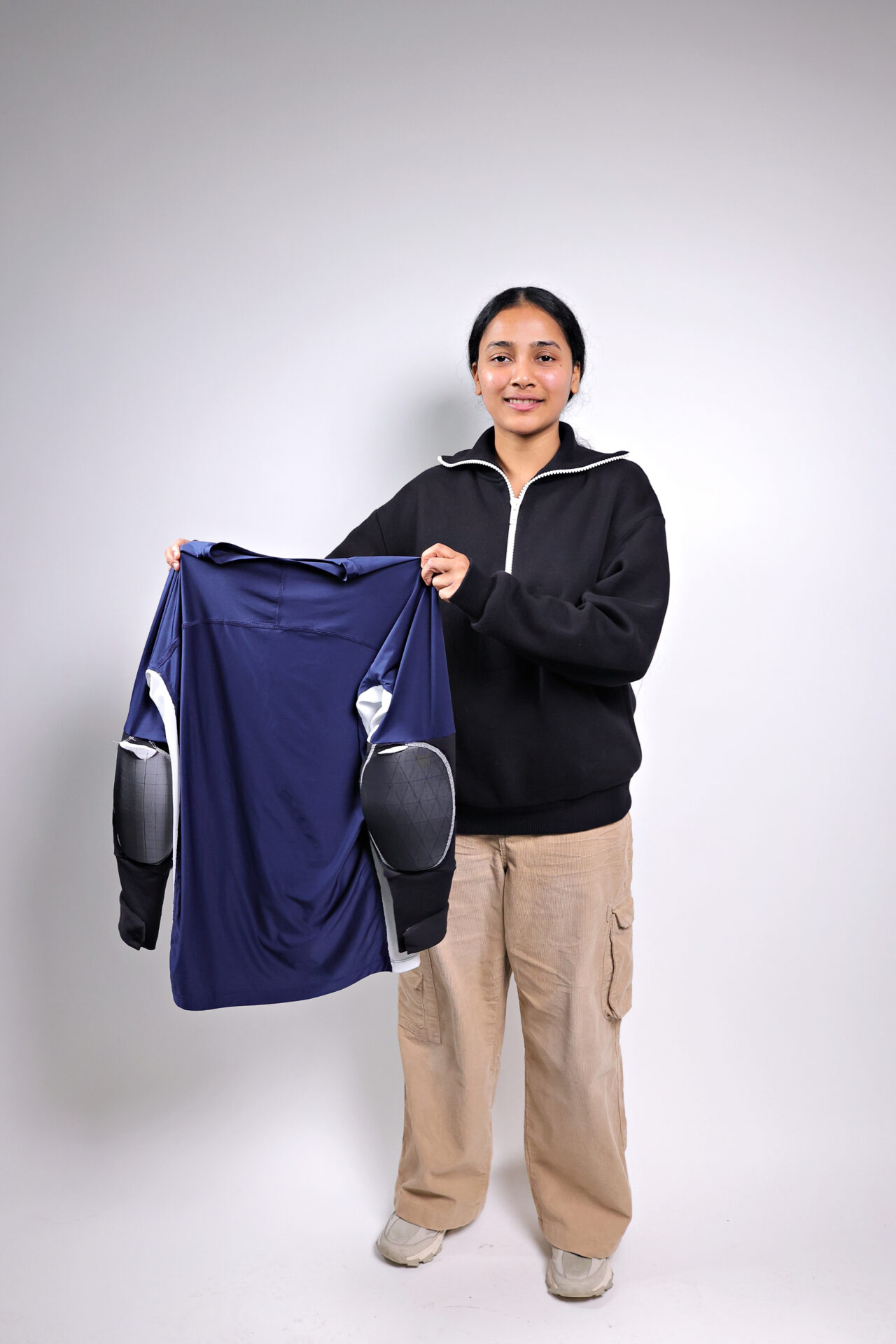Article by KPU Alumni Magazine
Through her trauma-informed design, Jade Crabbe sees herself as a voice for the marginalized.
Crabbe is the owner and design director of GreenJade Interiors, which focuses on commercial and residential interior renovations and fuses traditional Indigenous knowledge with modern design principles. By incorporating trauma-informed design into her practice, the work is not only aesthetically sound, but also resonant with meaning for her clients.
Her work is deeply informed by her First Nations heritage, a niche that she recognizes as both vital and underrepresented, and which GreenJade serves non- exclusively.
“I’m very passionate about representing people who usually don’t have a voice,” Crabbe says. “My passion is advocacy for people with quieter voices.” Crabbe’s passion for design was sparked at an early age and nurtured by her grandmother, who recognized her potential when she was just 10 years old. Crabbe’s grandmother declared that she would be “the next Douglas Cardinal,” a renowned Indigenous architect, while watching her play with Lego. Though young Jade had no idea who Cardinal was at the time, the seed had been planted. Originally from an Indigenous community in Dawson, Yukon, Crabbe was raised outside of Kamloops in a family dealing with addiction issues. Those same issues would follow her throughout her teen years. By 15, Crabbe had dropped out of school and was pregnant with her first child.
“I was sleeping on park benches, drinking outside on the sidewalk. I had no hope for the future, let alone the dream of becoming an architect,” she says. But her dream continued to flower. Eventually, her then-boyfriend (and now husband), who had chosen a sober life, asked her point-blank: “Are you going to stay in this life, or are you going to try something new?”
She realizes now how pivotal that question ended up being. It jarred something loose inside her and soon after she enrolled in KPU’s bachelor of interior design and moved to the Lower Mainland for her fresh start. “I looked at a few schools,” she said, “but KPU blew my socks off. It was so connected to the community, thoughtful and hugely rewarding. It was the beginning of the second half of my life.”
She says the community at KPU was tight-knit and offered the kind of support she needed at the time. The faculty was especially important in developing her skill and recognizing her potential. It was also during this time that Crabbe left Canada for the first time on a KPU-sponsored exchange program to France and Switzerland.
“It radically changed everything I thought I knew about social relations, religion, politics and design,” she says.

I’m very passionate about representing people who usually don’t have a voice
Crabbe graduated from KPU in 2021 and founded GreenJade shortly after. She remains connected to the school, serving as a design critic and a member of the Interior Design Program Advisory Committee. She also regularly employs graduates from the program at Green Jade.
“I’m always looking to hire other creatives and other alumni,” she says. “My first choice are the alumni who grew up at KPU because they have an extraordinary conceptual thought process. I know they have pristine attention to detail, and I probably speak for all students, they have an out of this world resilience.” She says what sets Green Jade Interiors apart is her unique approach to trauma-informed design. Drawing on her understanding of the psychological effects of trauma-particularly among survivors and descendants of residential schools – Crabbe weaves respect, transparency and control into every aspect of her design process.
The discovery of unmarked graves at residential schools in 2021, particularly in her hometown of Kamloops, weighed heavily on Crabbe as she launched her business. Although she had been working on trauma-informed design before the discovery, it solidified her commitment to advocating for Indigenous communities through her work. “I’m not a counsellor or a psychologist, but I do understand what it feels like as someone who has suffered these effects. My goal is always to ensure my clients feel in control,” she says.
She works hard to ensure that her designs reflect the cultural values and stories of the people she serves. “It’s quite rich with my ability to use the skills that KPU taught me about psychology and placemaking,” she says, “and my understanding of trauma-informed design serves me well in building relationships with
my clients.”
GreenJade is headquartered in Richmond, but her long-term goal is to return to her home territory in the Yukon, where she hopes to give back to the community that supported her education.
“It’s only right that I use the skills I’ve learned to help my community,” she says.










